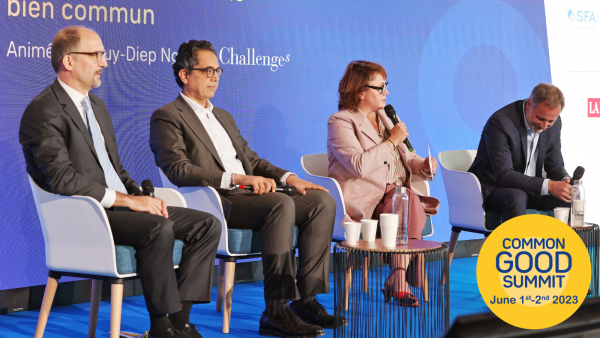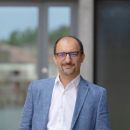This debate took place during the third edition of the Common Good Summit, organized jointly by TSE, Challenges and Les Echos-Le Parisien Evénements. On June 1 and 2, 2023, economists, economic decision-makers, representatives of public authorities and civil society came together to reflect on a central question: how can we save the common good? With over 1,300 participants and rich exchanges, this third edition confirms the importance of discussing tomorrow's issues together, from climate, mobility, food and inflation to health and artificial intelligence.
How can we preserve access to basic medicines that have become less profitable, while encouraging innovation in the face of the threat of antibiotic resistance, cancer and rare diseases? This was the challenge addressed during a lively debate on the issues of health and the common good.
"In France, we are under-investing in innovation, and in healthcare in particular". On the occasion of the 3rd edition of the Sommet du Bien Commun, Pierre Dubois, health economist at TSE, makes a clear observation.
Alongside Reda Guiha, President of Pfizer France, and Jean-Pierre Delord, Director of Research at the Toulouse Oncopole University Cancer Institute, they debate the balance between financial logic and the common good in the healthcare sector.
The President of Pfizer France believes that "for a pharmaceutical company, the common good is a duty. It's even our raison d'être, to find innovative medicines and ensure equity and rapidity in terms of patient access." Reda Guiha, whose company has developed one of the key vaccines in the fight against Covid-19, asserts that "antibiotic resistance is the next pandemic". According to him, it caused 1.27 million deaths in 2019, more than malaria or AIDS.
Change the business model
Hence the urgent need to create new antibiotics. But to do this, Pierre Dubois insists on the need to review the economic model. "Whether in the case of rare diseases, for which patient targets are very limited, or for older drugs whose patents are expiring, the system is not very good", he notes. The economist believes that France and the rest of Europe need a research subsidy agency, as in the United States, which could be used to fund the private sector, which invests heavily in clinical trials, which are extremely costly".
A vision shared by Jean-Pierre Delord: "Partnerships between industry and research, which are both demanding and effective, are one way of contributing to the common good, by bringing the academic and fundamental knowledge of researchers to the patient after a few years".
He concludes, "When we treat a patient, we change the destiny of the whole family. When we prevent a cancer relapse, a patient can resume a normal social and professional life. All this is very difficult to model today.
- More information about Pierre Dubois
- Extracts from Challenges (in French)





